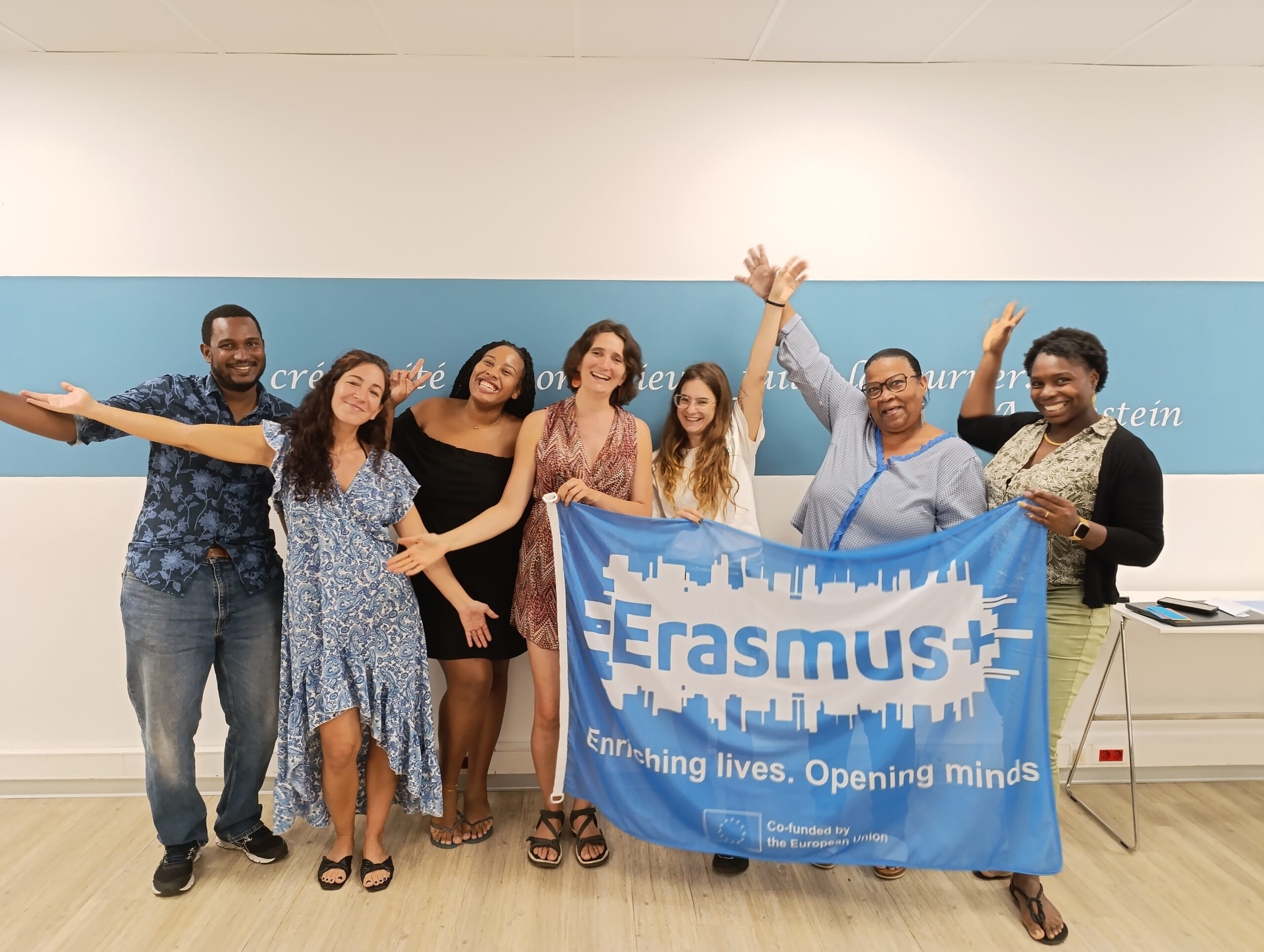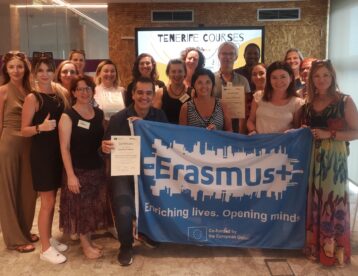FibiC –
Curriculum and Challenge for Learning and Applying Basic Financial Education
Project n. 2020-1-DE02-KA204-00755

Basic Financial Literacy is becoming an increasingly important issue. Financial competences are essential to the achieve and maintain sufficient life standing and well-being.
This educational project aimed at training every user in the implementation of a self-determined, competent handling of money.
Recent studies have shown that only 49% of European citizens would be able to maintain their current standard of living for three months thanks to their own accumulated savings. And 30% of all Europeans live without any savings at all.
Our wishes in life, but also our problems and expectations, are tightly connected to money. Money drives us, yet it is often the cause of many human problems. Money is a mirror of joys, fears, origins and hopes…
The competent use of money is therefore an incredibly important, vital issue. There is a clear need for action to improve the financial literacy of European consumers.

Basic Financial Literacy
The objective of the FIBIC project was to develop a modular curriculum that covered all important topics related to the complexity of basic financial knowledge and skills. This curriculum should serve as a guide and orientation for educational institutions, when planning and designing their own curricula and further training measures.
Project Results
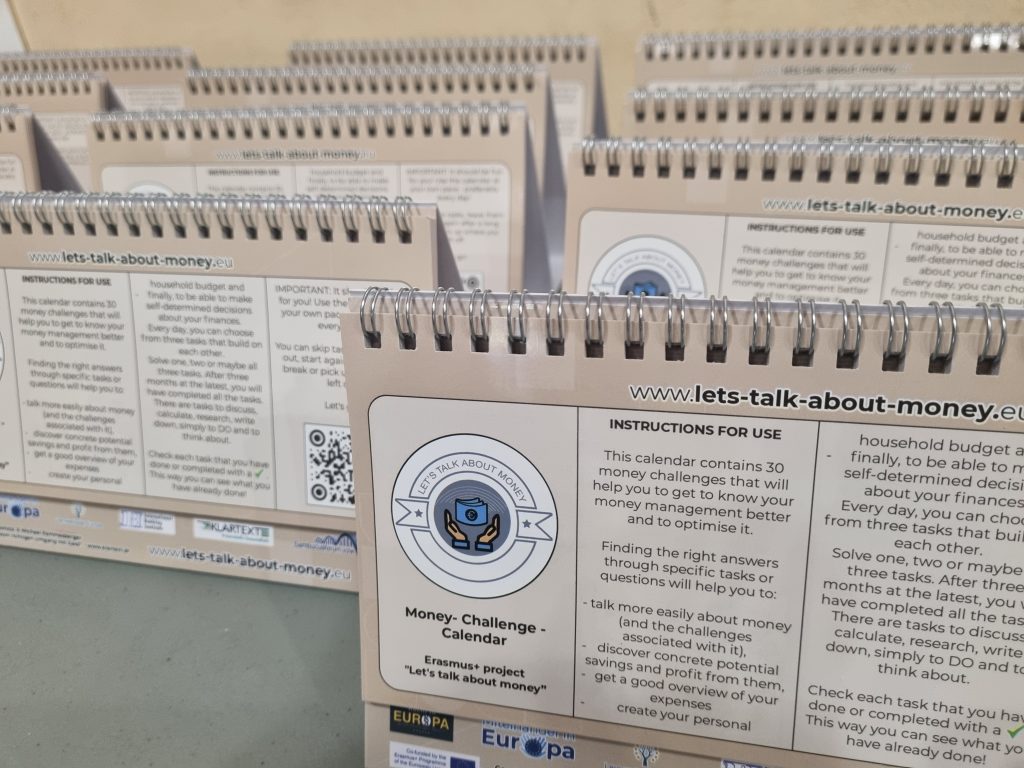
You can find the Intellectual Outputs in English, Spanish. German, Belgian and Bulgarian on the project´s website lets-talk-about-money.eu :
– Curriculum with lesson plans
– Calendar with a financial challenge that was printed in 2000 copies (picture)
Learn more at: lets-talk-about-money.eu
Multiplier Events
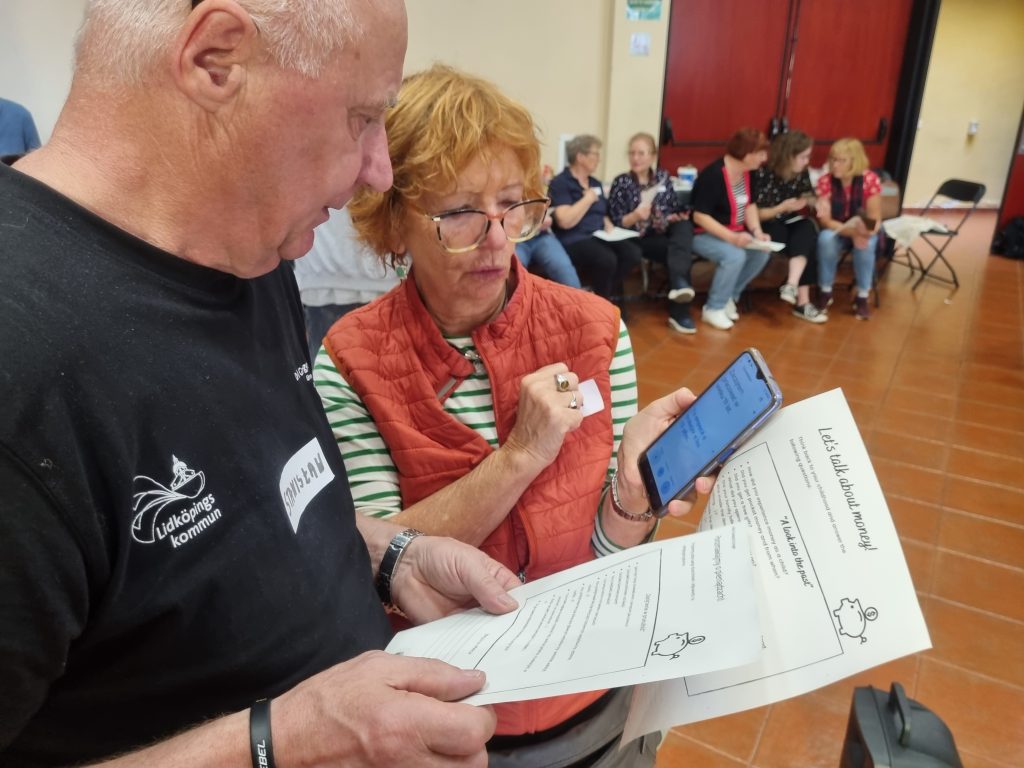
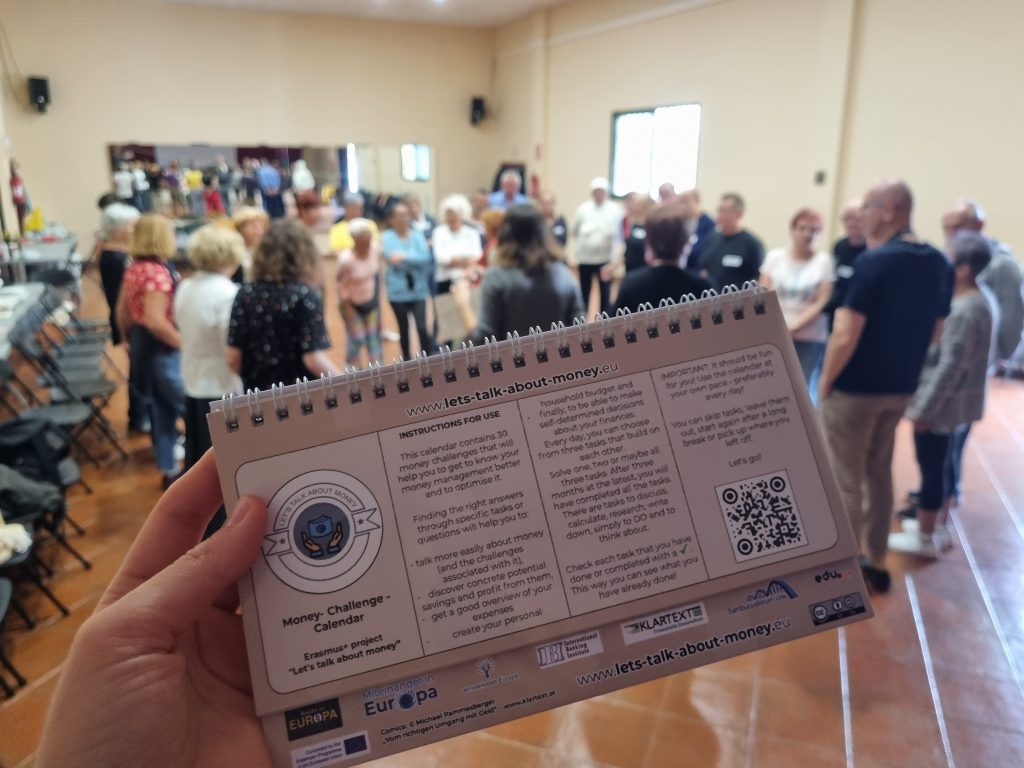
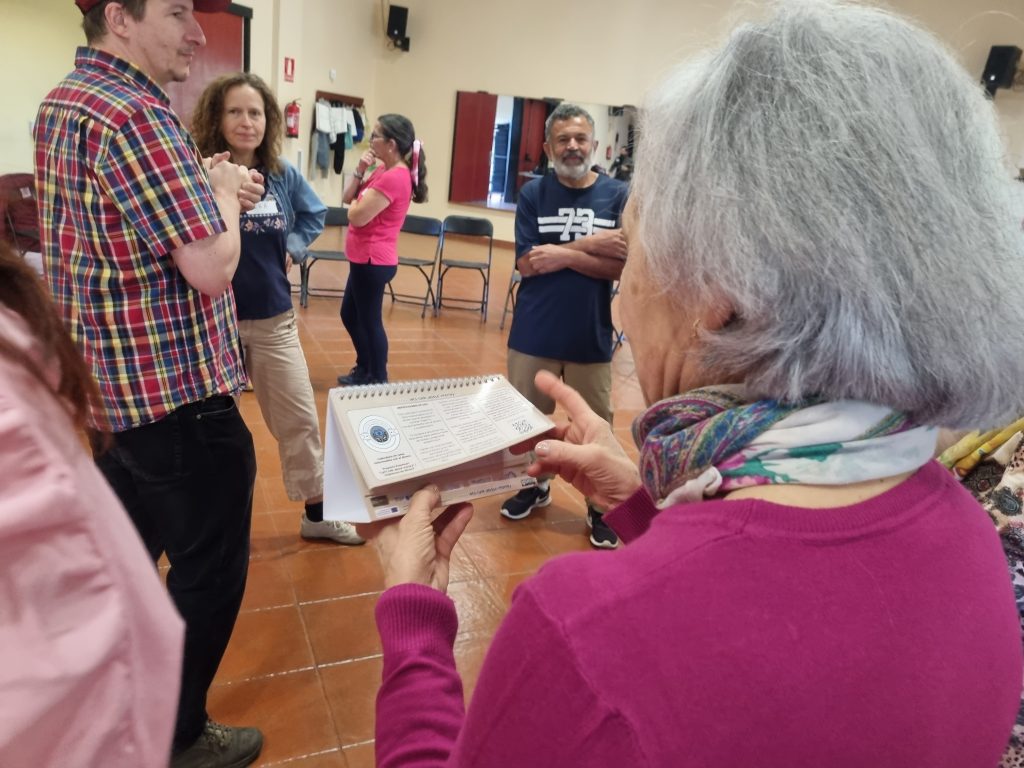
In Spain, we organized international multiplier events with adult organizations from Poland, Slovenia, Romania, Hungary, Italy and Spain (Cuenca and Tenerife).
Partners:
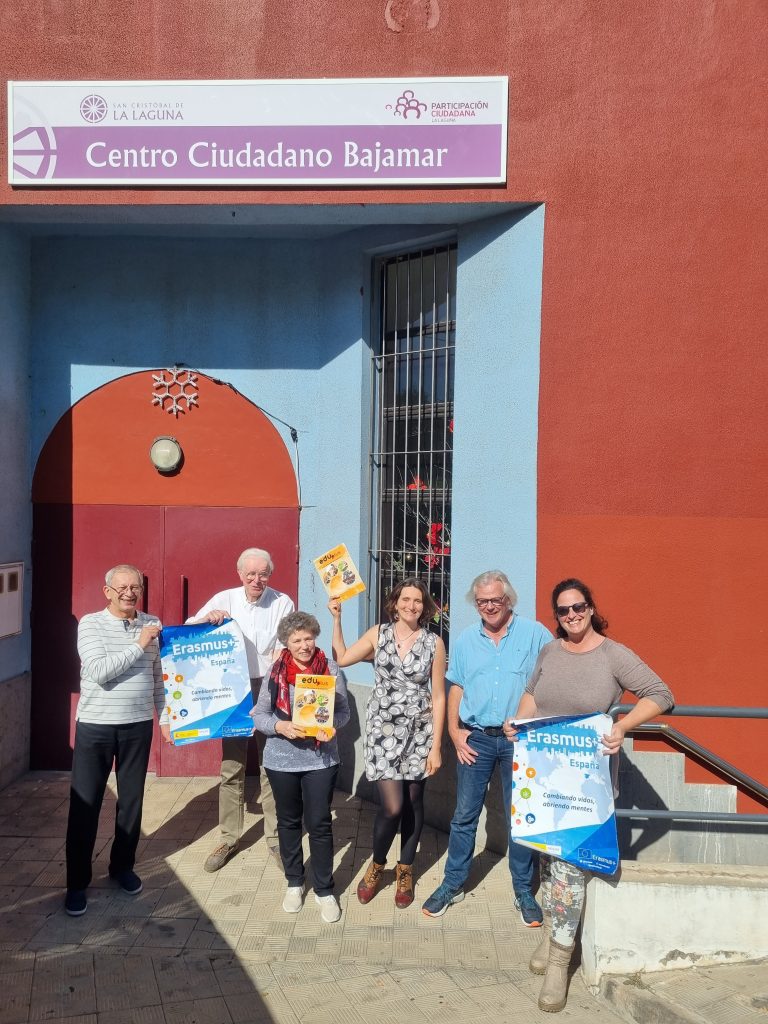
- Recht in Europa e. V. (Germany)
- Miteinander in Europa (Germany)
- Lernwerkstatt Europa (Bulgaria)
- International Banking Institute (Bulgaria)
- Schuldnerberatung Oberösterreich (Austria)
- Sambucusforum vzw (Belgium)
- EDUPLUS Association (Spain)

The European Commission’s support for the production of this publication does not constitute an endorsement of the contents, which reflect the views only of the authors, and the Commission cannot be held responsible for any use which may be made of the information contained therein.

